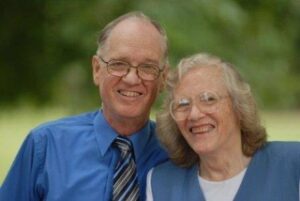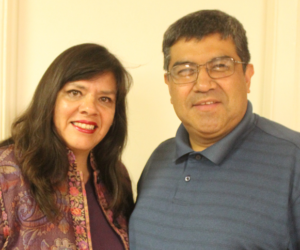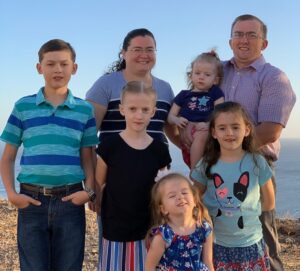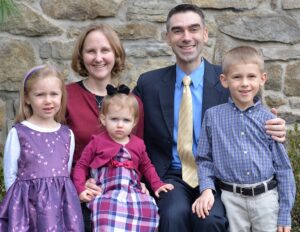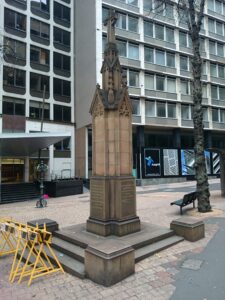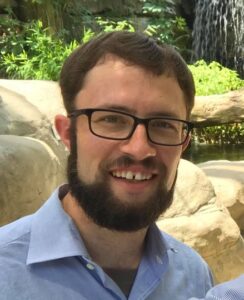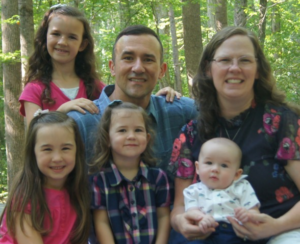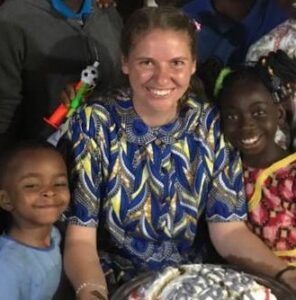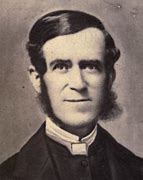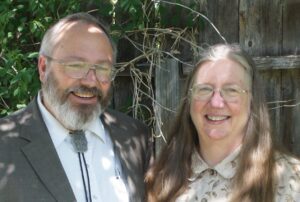 When our language helper, Lilee, asked me what kind of meat I like to eat, I attempted to say “kai kap muu kap NGUA” (chicken and pork and beef). But instead, I came up with ‘kai kap muu kap NGU” (chicken and pork and SNAKE)! Lilee gave me a funny look and replied in English, “Really?!” –K.R, Laos
When our language helper, Lilee, asked me what kind of meat I like to eat, I attempted to say “kai kap muu kap NGUA” (chicken and pork and beef). But instead, I came up with ‘kai kap muu kap NGU” (chicken and pork and SNAKE)! Lilee gave me a funny look and replied in English, “Really?!” –K.R, Laos
Natural Language Learning
Billions of people in the world are bilingual and even multilingual. It is not unusual for people in India or Africa to speak four or five languages. Why should it be so difficult for missionaries to learn a new language or two? Perhaps we are going at language learning in the wrong way. The normal procedure for our missionaries is Bible college, deputation, and then a language school on their chosen field. There is a vitally important step that is usually overlooked: pre-field linguistic training such as has been available for Baptist missionaries at BBTI for nearly fifty years. Some have greatly benefited from it, however, the vast majority have either not known of its existence or chosen not to take advantage of it.
The language school method of language learning presupposes that a school is available for the language the missionary needs to learn. Language schools teach trade languages such as French, Portuguese, Spanish, Swahili, Arabic, Russian, Chinese, Japanese, Korean, etc. There are 7,151 languages in the world, and it would be safe to say that 6,000 or more of them have no language schools. Yet there are billions of lost souls that speak these languages: souls for whom Jesus died, souls that He desires to save, and souls that deserve to hear the message in their heart languages. Some of these languages have only a few hundred speakers while others have several million. With few exceptions, our Independent Baptist missionaries are not attempting to reach people whose languages have no schools because of the seemingly impossible language barrier. Many of these languages are still unwritten which of course means they have no portion of God’s Word. An estimated eighty-five percent of our missionaries go to only fifteen countries and then only to the major trade languages. Most of these countries have several other language groups. For instance, in the African country of Côte d’Ivoire, there are 77 languages besides the official French. Would you not agree that all people deserve to hear the Gospel in the language they understand best, just as we did?
A language school where one is available is a good idea but not when the missionary first arrives on the field. We suggest that he begins vigorously learning the language from the people and progress to a point of fluency in a more natural way. Schools are not the natural way to learn languages. We did not learn our first language in one! The method of language learning that we suggest may sound radical to Americans, but it works, and it is usually better and faster. This plan will require extreme dedication and diligence on the part of the missionary. If he is too undisciplined or unwilling to take on this responsibility and become a learner, leaving behind the mentality of a student, then he should simply go the language school route and live with its results and limitations.
We are not suggesting that the missionary simply go out with the people and “pick up the language” the best he can. No, we are suggesting a plan that involves a tried and proven method. The missionary can go to the field with this method and begin using it upon arrival. But he must learn the method here first. Before you ask, the answer is no; he cannot learn it on the internet. And it will take time. (Missionaries spend the necessary time to prepare theologically in Bible college and financially on deputation. Why should they not spend the necessary time to prepare linguistically?)
This natural language learning method is part of the overall nine-month Advanced Missionary Training (AMT) program of BBTI which provides many language and culture learning tools that are not available in Bible colleges. The first skill we teach is phonetics. I have said it a thousand times; one more time will not hurt: No missionary should attempt to learn a new language without first studying phonetics! (At BBTI both husband and wife take the same classes.) Students spend at least one hundred fifty literal classroom hours learning to recognize and reproduce any sound they may encounter (there are about eight hundred of them). Because he learns to produce the new sounds exactly as the native speaker, he can speak a new language with little or no foreign accent. An accent does not disappear with time; from the beginning, he must keep from superimposing his English habits on the new language by forming new habits that will last for life.
The missionary student uses his newly acquired phonetic skill for a following course, Situational Language Learning. This includes using a language helper (I did not say a language teacher) who speaks a foreign language well. (In recent years, we have used Sina-Sina from Papua New Guinea, Japanese, Korean, Khmer from Cambodia, and Spanish.) The student learns how to elicit the language from the helper in a step-by-step process, beginning with simple object-like words and slowly increasing the length of the utterances. In a short time, he is fluent in all the sounds of that language. In a few weeks, he, along with a partner, will progress to eliciting and learning dialogues natural to the native culture such as buying food in the market. If his target language has no language school, he can continue using this method for as long as needed. If a language school is available, he can enter it after a few months and advance rapidly in grammar and more vocabulary. He begins at the top of the class because he is not struggling with pronunciation. He will sound like a native. Speaking and acting like a native should make him much less of an outsider. He will be comfortable with the people and hopefully they will be more willing to listen to his message. They may even tell him, “You eat our food, you spend time with us, you talk like us. Hey, you are one of us!”
 Our language tutor was teaching us to pray in the Indonesian language. We write out our prayer for his review and then read/pray them before class begins. My wife was thanking God for his mercy, but omitted an “h” sound in the middle of the word. She thanked God for his spider webs instead! —D.C.
Our language tutor was teaching us to pray in the Indonesian language. We write out our prayer for his review and then read/pray them before class begins. My wife was thanking God for his mercy, but omitted an “h” sound in the middle of the word. She thanked God for his spider webs instead! —D.C.